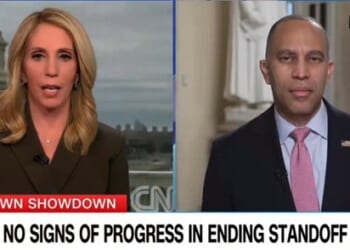Over a decade into Yemen’s civil war, one expert explains why neither side can win—and how China, the US, and Gulf rivals are shaping the conflict.
The war in Yemen is now over a decade old, with no signs of resolution on the horizon. Israeli airstrikes last month decimated the senior ranks of the government in Sana’a, prompting the Houthis to appoint an almost entirely new cabinet. At the same time, in-fighting within the internationally recognized Yemeni government has forced a showdown within the Presidential Leadership Council over decision-making and legitimacy. Both sides are struggling to hold themselves together.
In this episode of Divergences, Khaldoon Bakahail, a strategic advisor with the Geneva Center for Security Sector Governance and a long-time expert on Yemeni political-military affairs, surveys the many issues that have led to the current stalemate and stagnation of the conflict. “The situation in Yemen,” he says, “is a kind of stalemate at this point. Both the internationally recognized government in Aden and the so-called Houthi government in Sana’a are facing massive challenges—politically, militarily, and moreover on the economic side at this moment.”
He argues that neither side will simply disappear. “There will be no easy military solution to the conflict in Yemen,” he says. “The analysis that the Houthis will just suddenly vanish and disappear and that continuous airstrikes will take them out of power—I don’t see this happening. Neither will the internationally recognized government be kicked out totally, given the backers supporting it, especially Saudi Arabia and the UAE.”
That support, Bakahail explains, has allowed the Yemeni government to remain symbolically present with the international community amid what he calls “a policy of no policy” from Washington. “The ongoing ‘no policy’ in Yemen is causing more harm, I believe, to US national security interests than it is helping,” he says, warning that America’s diplomatic absence “only helps to distract the national security interests of the Americans … and definitely this will help the Russians and the Chinese. When you are not there, people will fill the vacuum.”
Bakahail also points to Beijing’s careful balancing act. “The Chinese are very smart playing their cards,” he notes. “They are still pursuing their neutrality, opening channels with all parties to the conflict—the Houthis, the government of Yemen—and balancing their strategic relations with the Gulf countries.”
Ultimately, Bakahail believes any endgame will require elite-level negotiations that include all major factions. “You cannot see Yemen without the Houthis, without the Islahis, without the tribes,” he says. “Bringing them together to understand their interests and concerns is vital to really stabilize the country.”
Listen now on Apple, Spotify, or wherever you get your podcasts.
About the Speakers:
Khaldoon Bakahail is currently a senior advisor on security sector reform for the Geneva-based Center for Security Sector Governance (DCAF) and serves as the country coordinator for Yemen. In his role at DCAF, Bakahail has designed and facilitated high-level dialogues between various regional and local actors involved in Yemen’s ongoing conflict. He routinely advises senior government officials, the United Nations, and leading NGOs on security and political issues related to Yemen and the broader region. He is also a participant in the T20/G20 Global Solutions Initiative.
Joshua Yaphe is a senior fellow at the Center for the National Interest and was a senior analyst for the Arabian Peninsula at the US State Department’s Bureau of Intelligence and Research. He has a PhD in History from American University in Washington, DC, and is the author of Saudi Arabia and Iraq as Friends and Enemies: Borders, Tribes and a History Shared. In 2020, he was a visiting fellow at the National Council on US-Arab Relations, and from 2022 to 2024 he served as a visiting faculty member at the National Intelligence University. His latest book, Time and Narrative in Intelligence Analysis: A New Framework for the Production of Meaning, is available for free in an Open Access online edition.


















